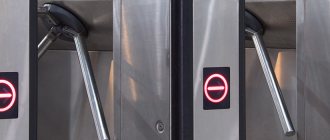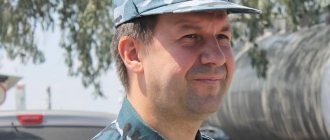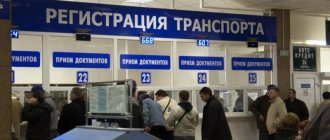Many young people, having graduated from school and passed the Unified State Exam, feel confused and sometimes afraid because they have absolutely no idea what profession they should choose and where to go to study. All this happens because we know about most professions only superficially: we see it from the outside and on TV, we read some information in books, we get something from career guidance lessons at school. However, this information is not at all enough to determine your future path.
Reconomica decided to help young people and tell, without embellishment, the story of a young man who has considerable experience in customs. Without mincing words, he told us about all the advantages and disadvantages of his profession, and also gave some useful advice to those who are planning to follow in his footsteps. Maybe, after reading this article, someone will understand that their calling is to wear a green uniform and carry out customs control, and someone will be convinced that it is better to try themselves in another field.
How I came to choose the profession of a customs officer
Good afternoon My name is Roman, I’m 27, I live in Rostov-on-Don, I work in the public service, namely, I am an official of the customs authorities of the Russian Federation. Today I want to share with you information about how the choice of profession took place, who might be interested in it, what are the basic requirements for a modern customs officer.
Let me start with the fact that I cannot be called a person who, from birth, has a clear idea of his work path and follows it religiously. Let's just say that preferences have always leaned towards intellectual activity, which was facilitated by successful studies at school and university.
Zero action to stop corrupt officials
I conveyed all this to Putin, the FSB, the Central Internal Affairs Directorate, the Accounts Chamber, the Ministry of Justice, and the Prosecutor General's Office. And in response - inarticulate moaning and zero actions to stop corrupt officials. They wrote about me on this resource - https://pasmi.ru/archive/255983/
No one prosecuted me for libel (and therefore my arguments are correct), I was provoked into committing a crime three times and was threatened with death twice. Last time in 2021.
I complained several times to the Prosecutor General's Office of the Russian Federation. While there is a lull there, apparently they are counting on keeping silent about my latest statement about bringing criminal charges against the leaders of the Ministry of Justice for directly deceiving me. The Ministry of Justice lied to me for a year that they were conducting a legal and anti-corruption examination of the Regulations. However, as soon as N.V. Poklonskaya left, the examination was immediately curtailed (or perhaps not started at all), and they continued to write letters to me saying that the examination was being carried out. Naturally, I carefully preserve these letters as direct evidence of deception.
About wages at customs
And one more important point: you shouldn’t imagine mountains of gold.
I can roughly outline the level of wages for employees of the regional customs department: from 25 to 38 thousand rubles on average per month, taking into account all bonuses and allowances for inspectors. Entry-level management - 50-60 thousand rubles. And only senior managers have an income of about 100 thousand rubles. In customs houses and at customs posts, this figure is, accordingly, even lower.
Structure of customs authorities
So, now directly to the work itself.
The structure of customs authorities is heterogeneous and quite complex. Accordingly, at different levels of this system, officials are assigned different tasks.
The central level is the Federal Customs Service of Russia . It is here that global problems are solved and general management of the system is carried out. Accordingly, the nature of the work is most “speculative.” Big heads set the trend for the development of customs administration and determine the vector of the further existence of the system.
Next come the regional customs departments (I am a representative of one of them). At this level, the goals transmitted by the federal center are specified, as well as control over their achievement in the entrusted territory. The type of work performed is general management, with customs specifics.
The next step is customs , which exercises direct control over the activities of the lower level, namely customs posts. Since these levels are close to the ground, the nature of the work involves a greater variety of tasks to be solved, interaction with participants in foreign trade and persons crossing the customs border, carrying out customs operations (reception and verification of customs declarations, customs inspections and other exciting activities) on their own hands. And if we talk about possible manifestations of corruption, the most favorable environment for their occurrence is the customs post.
However, the size of bribes here is rather purely symbolic; cases of receiving them are extremely rare, not least thanks to the work of the relevant anti-corruption units, which successfully function in any customs authority.
A customs officer at his workplace.
Fear and Loathing at DVTU
Six months ago, the Khasan customs of the Far Eastern Customs Administration was disbanded, and the posts were given to Vladivostok and Ussuriysk. But according to the observations of foreign trade participants, the chaos has only increased. Even the vaunted CEDs, where you can supposedly apply regardless of the location of the cargo, do not save the situation: inspectors refuse to accept declarations, advising you to apply at your “place of registration.” How deplorable the work with the former Khasan customs post now looks, we were told by a foreign trade participant who has been present on the market for 20 years.
“In addition to you, we have participants in foreign trade activities with whom the customs does not want to quarrel”
“At one time, the Ministry of Foreign Affairs was allocated to Khasan customs. And he stood at the Kraskino international checkpoint (Khasan customs post, border with China), helped, the car underwent x-rays instead of inspections, and everything is visible. Since the beginning of the year, this MIDK began to be taken either to Vladivostok customs or somewhere else, but now it is not here. It was convenient and fast with MIDK,” says the entrepreneur. − Previously, during the Khasan customs, the Quality Control Department of the Khasan customs post accepted electronic declarations for goods. After passing the necessary procedures, the vehicle received a special tracker that tracked its further route. Then the car was sent to the temporary storage warehouse in Kraskino - 29 km along a road from which there is nowhere to turn. The temporary storage warehouse and maintenance department finished the working day at the same time, and, in extreme cases, the ETD was issued by the end of the next working day.
Ussuriysk customs mocks participants in foreign economic activity. Now ETD at Ussuriysk customs can only be accepted by the Ussuriysk customs post. From the Kraskino international checkpoint, trucks are not immediately sent to the temporary storage warehouse - supposedly the surveillance trackers have been canceled, and it is impossible to send post officers to customs escort - there is not enough staff. And if he goes to the temporary storage warehouse, who will return him back to the checkpoint? So all the registered trucks stand at the checkpoint and wait for the end of the working day. At 18:00 in the evening, a customs officer gets into one of the cars and escorts all vehicles that arrived during the day to the temporary storage warehouse. And only the next day, in the morning, the declarant submits the ETD. And you have to wait. But you can wait a long time, because the data goes to the Ussuri post. It works until 20.30, and at 20.00, for example, when there is no one at the MAPP and temporary storage warehouse, Ussuri inspectors can schedule an inspection. The OTOiTC at the Ussuriysky transport station also works on weekends, but in Kraskino neither the temporary storage warehouse nor the departments of the Khasansky transport station work.
When on November 26, at a personal meeting with the deputy head of the Ussuri customs post, Larisa Galkova, I noted the inconvenient difference in the opening hours of the posts, she answered me, they say, you are not the only ones here registering, and in addition to you, we have perishable products, and registers of foreign trade, with which customs does not want to quarrel with.”
Do you want to go to the CED? Do you have money?
Each customs department has at least one CED, where you can, if you believe the statements of official representatives of the Federal Customs Service, apply, regardless of the location of the cargo. But this is not so, says our interlocutor. More precisely, not quite like that.
“Of course, the UchVED can submit an EDT to any EDC in Russia, but this is written on paper, and it is not a fact of what is happening in reality. Many locals submit documents to the Mozhaisk Center for Economic Execution (TsTU), to the Vladivostok Center for Economic Documentation, but first they need to negotiate there for a certain fee. We ourselves tried to apply to the Vladivostok CED, where several declarations were rejected without explanation. We call to find out what the problem is. The inspector says: “Why are you coming here? You are from Ussuri, so go to the Ussuri customs post.” We answer, they say, we have the right to go where we want, to which we should: “But we were told not to accept you.” At that time, we had already collected about 700 thousand to pay duties. The return may take 30-45 days, plus there is fuss with documents, again money. We understand that we had to come to the CED, find the right people (and this is not difficult, if you are boiling in a cauldron, you know where to look). And accordingly, you can agree that for a certain fee you will be accepted at any EDC. My friends offered to arrange protection for me at the Priamursky EDC, but my supply volumes are not enough to pay someone for them.”
Businesses are complaining about corruption in the Smolensk Central Economic Distribution Center; PROVED recently told the same story using the example of the Smolensk Central Economic Distribution Center. And this already looks like a trend, and not a private “excess on the ground.”
10 thousand rubles for registration “without nerves”
“At the Khasan customs post of the Ussuri customs (aka Kraskino international checkpoint) there are 2 gradations of “gratitude” - 10 thousand and 25 thousand rubles. 10 thousand is a reward for the timely work of the inspector, for the fact that he will carry out a quality reconciliation of documents, an inspection, write a proper inspection report, and will not pick at misplaced commas. Those. for those actions that the inspector must do by law, but which he delays on purpose,” our interlocutor continues. − 25 thousand rubles are paid, for example, for the fact that you are not bullied for weight. In China, for example, on their scales the goods weighed 10 kg, and on the temporary storage warehouse in Kraskino, on other scales, 10.5 kg. The party comes out, and the inspector does not take into account any arguments, says: “No, there is an advantage.” Nobody directly extorts bribes, but they go around saying, “Well, you know, we need to negotiate, look for consensus.” Customs officers are now wary of taking money, afraid of punitive measures. And someone, on the contrary, is trying to get it in the end. I unwittingly overheard a conversation between two inspectors; they did not notice me in the car. One says to the other: “Yes, they thank you, and thank God, you don’t have to ask yourself.”
But there is no smuggling. In its purest form
“To smuggle even one truck through real smuggling - it has to reach such levels, and it has to be some kind of fur coat or expensive electronics. Normal departments of foreign economic affairs have already realized that running an honest business and honest logistics is much more profitable, calmer, and cheaper than engaging in this smuggling. The probability that you will be caught with contraband is 80 percent. There are gray schemes when one thing is passed off as another. There is no smuggling in its pure form.
I haven’t paid anyone for a long time and I don’t want to pay because there’s nothing to pay. So we were refused permission to release a truck with goods. And all because someone decided that this product costs 4 dollars per kg, and not like we bought it from the Chinese. DVTU is very jealous of our low-risk deliveries, but we always prove them in full, so they do dirty tricks - they delay time, refuse to accept declarations. Customs is a body that fills the state treasury. And that’s why no one goes against customs.”
Unprepossessing Free Port
“Here is a popular topic - the Free Port of Vladivostok, which supposedly operates 7 days a week, 24 hours a day. But still not all crossings are working according to this order. Requests are met with a banal response: there is no opportunity, there is not enough personnel or there is no technical capability.
There is a story going around in the Far East that the president was not very happy that this Free Port was created at all. And our Trutnev (Deputy Chairman of the Government of the Russian Federation, Presidential Plenipotentiary Envoy to the Far Eastern Federal District Yuri Trutnev - editor's note) was allegedly told, they say, you've started it, you can clean it up.
On the Chinese side, people are very interested in business - they have communications installed, roads are being built, everything has already been done to the border, two highways, and warehouses, on a grandiose scale. They believe in a transit corridor, in Primorye-2. The Chinese really need access to the sea here, they are trying with all their might and investing money and effort. And they say naively: “Putin signed the order, transit will begin soon.” Then they ask us: “They’re building a road on that side?” We answer: “No guys. There is no road." They shrug their shoulders: “How can this be? We read that money has been allocated and that the process is underway.” Well, the money may have been allocated and even spent. And the road remained there as it was. Well, the Summa group entered the port of Zarubino, the port of Posyet, they are doing something in the port, expanding it, but the infrastructure itself, the Kraskino international checkpoint, is so sad that I don’t want to talk about it.”
Recommendations for future customs officers
Based on the specifics of work at different levels of the system, I can give the following recommendations, as well as note some key points for those who suddenly decide to throw in their lot with government agencies, in particular with the customs service.
You will have to work not so much for a large reward, but for an idea.
Yes, the salary is stable (by the way, so stable that over these 4 years it has not increased a penny given the wild level of inflation in the country), it is paid regularly and without delays. But in general, on the labor market, I think this is not the most profitable offer from a financial point of view.
However, for those who want to satisfy their high moral needs for involvement in socially significant matters, such work should be to their liking. And such interest can be fueled by receiving various kinds of incentives: certificates, medals for conscientious service.
Who is this profession best suited for?
Work at a customs post is more suitable for men, since it is physically more labor-intensive, and the image of a customs border guard is better suited to the male gender. Work in customs and customs departments can be quite successfully performed by representatives of the weaker sex on an equal basis with men.
I would definitely recommend serving in the customs authorities to women who do not bear the responsibility of earning the main income for their family, and who are planning to go on maternity leave one or more times.
Here you can fully satisfy your needs in communicating with adequate, well-mannered, educated people, while receiving a bonus in the form of a salary sufficient to cover your personal needs, fearlessly go on maternity leave, knowing that at the end of it a job will be waiting for you.
Career development takes a long time
Career growth in the absence of a “strong backbone” is not always possible and absolutely takes a lot of time.
So, to fill positions in the management category, you must work for at least 4 years (these are only the regulatory requirements for work experience), and then, as they say, it’s up to you. However, truly active, proactive, responsible and disruptive people have a chance to rise to leadership positions at entry-level and middle management.
There are also business trips
The work requires business trips (albeit not regular, on average 2-3 times a year) to participate in inspections, meetings, etc.
During such trips, the customs authority provides comfortable travel and accommodation conditions. For some, this may be an additional opportunity to visit the cities of their region and beyond, get acquainted with their sights, and expand their circle of acquaintances.
Why was this possible?
When customs was created in 1992, they could not decide for a long time whether it was a security structure or a civilian one. Therefore, customs was not initially included in a number of laws regulating insurance issues in relation to law enforcement officers. The cunning guys from the central apparatus took advantage of this and, using gaps in the legislation, concocted such a scheme.
It would seem that the leadership of the Federal Customs Service should come up with a legislative initiative and make changes to the law? But no - the water should be cloudy and everything should be extremely unclear: this way it’s easier to stir up a corruption scheme. To date, there are no direct regulations governing insurance rules for customs officers. The main document in this scheme is the Regulations, the standard form of which is not approved by regulation. The regulation has not undergone legal and anti-corruption examination.
For 18 years, the courts of the Russian Federation (since 2002 the first Regulation came into force), refusing to satisfy customs officers’ legal demands, refer to a document whose standard form is not approved by a regulatory legal act.
How do you like this? In our country, the law has long been applied only where it is needed as a punitive instrument in relation to the indigenous population. In other cases, the concepts of a nomenklatura group are used, which are essentially social parasites that infiltrated the top of our state pyramid in 1991. I’ll write about this sometime later.








